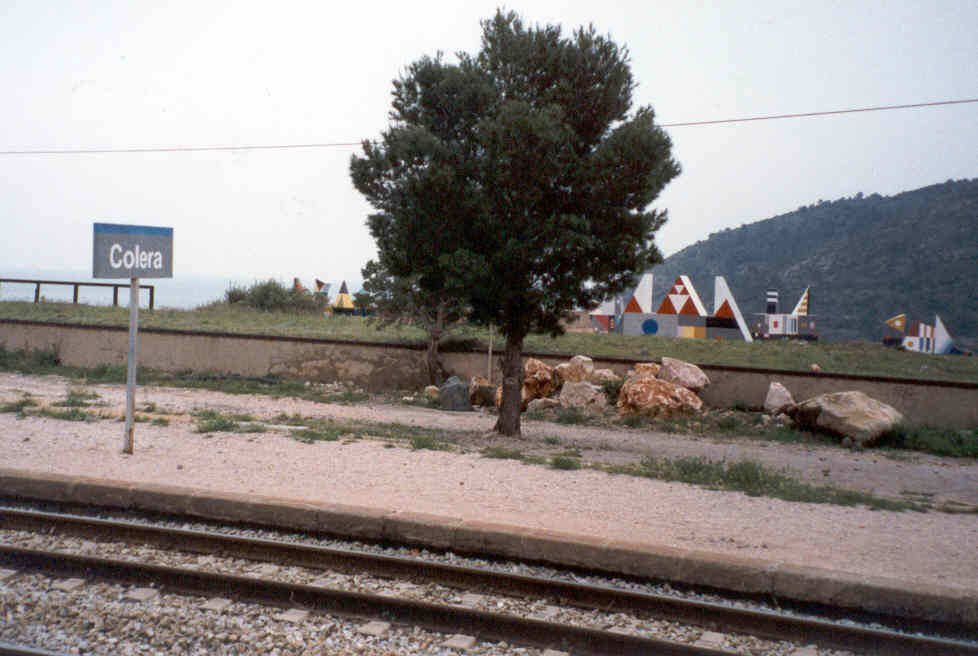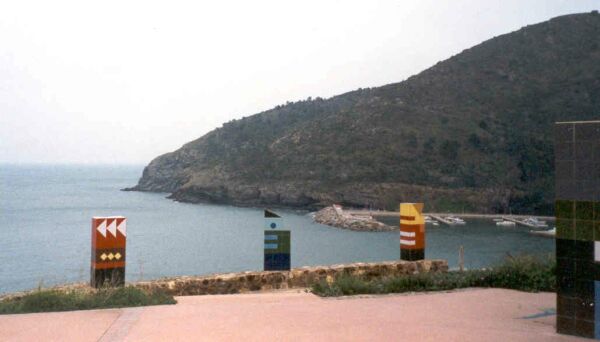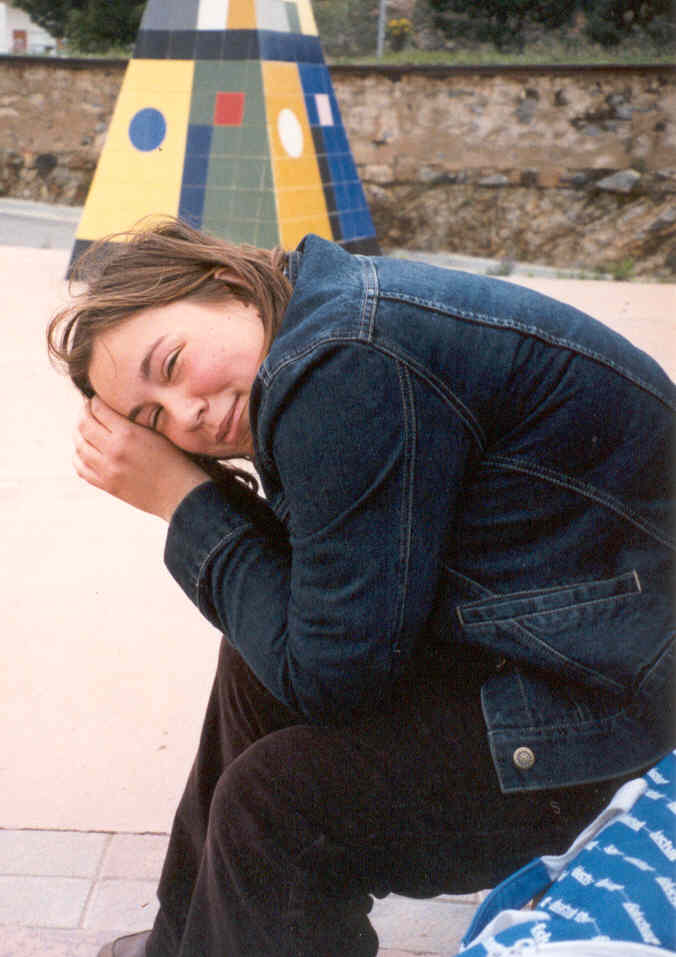Soundtrack: "Homeward Bound" by Simon and Garfunkel
I don't think it'd be too out of line for me to say that I'm cursed when it comes to traveling. Planes crash, luggage gets delayed or misdirected or enters alternative dimensions, never to return. Flights are delayed or hit severe turbulence, or are inexplicably canceled. When I'm on the ground, trains once again are delayed. Once they start moving, they soon stop at odd deserted points on the track and stay there for hours. Usually these problems have nothing directly do do with any thing I've done, other than try to get from one place to another. The problems just follow me like that cloud following Pigpen in The Peanuts. At university, my next door neighbor Jason had a personal electrical field that seemed to make computers work smoothly whenever he entered the room (quite maddening really, because he never believed you when you went to him for help with computer problems). I seem to have a negative version of that field that interferes with travel vehicles.
As a consequence of this field, when I do make a travel mistake it has the tendency to snowball something fierce. This was put to a test on our way out of Barcelona. After three wet but good days in the city, we knew it was time to leave when we woke up on Saturday and it was sunny. After a trip to the excellent Museum of Modern Art, Ylva and I bought a couple bottles of alcohol (including two bottles of 140 proof Absenta Absinthe for what it would cost to get a shot of absinthe in the U.K.) and headed for the train station.
For as long as I can remember, about two or three times a month I've suffered from odd gastro-intestinal problems. I've no clue where they come from, no known connection to anything in my diet other than the general shoddy condition of my diet, and no real idea how to stop it once it starts other than to sit hunched and motionless for long periods of time breathing heavily, with ready access to a toilet.
This is unfortunately not a non sequitur. I started feeling the distinctive prickly sweat and dodgy stomach cramping as we were moving towards the station. The hip straps of my backpack weren't any help, putting pressure on exactly the wrong place. But the weight of my share of five bottles was intolerable without the strap cinched tight.
I calmed down when we got to the station, and sitting there breathing the dank oily smell of the train station oddly helped. When the train finally came, we got onto the last car and sat in the very back seats. This is probably the point where the mistake-from-whence-all-others-comes was made.
Barcelona to Perpignan is a three hour direct train ride, passing through some of the most stunning and dramatic coastline in Catalonia. (Catalonia is the north west most area of Spain, extending into France, almost its own country. Kind of like the Basque region, with fewer terrorists.) Our train was to stop in either Port Bou or Cerbere for us to get off to catch our Perpignan bound train. Simple, right? Except there was no intercom system to announce the upcoming stations, and since we were so far back in the train we couldn't see the signs for what station we're arriving at until after we pull away from the station.
Ylva and I were both heavy-lidded from lack of sleep, and I was also a bit light-headed from breathing with such heavy deliberation for the past two hours. But I was generally feeling okay as long as I didn't move too much. I was almost drunk with oxygen though, and when I get drunk, I get talkative. When I get sober, I get talkative. When I get nervous, calm, etc., I get talkative. Occasionally I get pedantic as well. At this point, I was trying to explain to Ylva the difference between the Yiddish "oy" and the Kiwi "Oi!"
As I understand it, the "oi!" is filled with frustration and aggression, coming as it does from a country that fuses two distinctly aggressive cultures: the Imperialist British and the equally aggressive Maori (not the original owners of the islands, but they ate the peaceable Maraori owners, so its theirs now).
"Oy" on the other hand, stems from 6,000 years of the Jews being oppressed by everyone from their next door neighbors to their own God. "Oy" is much more resigned, frustrated, but accepting of their general maltreated place in the universe.
So the Kiwi says, "Oi! Stop fucking doing that!" while the Yid says, "Oy vey, I wish they'd stop doing that." Sounds simplistic, I guess, and vaguely racist, but nevertheless more than a little true.
I finished my mini-lecture and gave a hyperventilated look at my watch to discover that, according to the train schedule, the stop to Port Bou should be coming up in two minutes. And the train was slowing down. I told Ylva, "I think this is our stop. It should be, at least, according to the schedule." So Ylva and I frantically grabbed our stuff and went to the door.
The view out the door was stunning. A town, scaling up the hills around a small natural bay, presumably the port in Port Bou. It looked like the type of city that would grow and become wealthy based on the tourism alone, consequently becoming a good railway juncture. We couldn't actually see the substantial city we assumed was there, but there's enough of a city to trick us.
Our poor seating choice became more apparent; we couldn't actually see the name of the town at the station down the track, but blithely we thought we could step out and get back on the train if we were wrong.
The train stopped. Ylva followed the one other passenger alighting at the stop (which should have been another major hint) and I tried to step out after her.
And then the door closed on my left arm. The train slowly started to move with me stuck in it. Ylva was saying something that sounded concerned, but I was too wrapped up trying to save my arm to pay attention. I pushed the door back open enough to pull my arm out, and since I wasn't really hanging on to anything, took an undignified tumble out to the rocky ground, unbalanced by the excessive alcohol in my pack (and that may be the only time you hear me use the phrase "excessive alcohol").
When I struggled undignified to my feet and look up, I saw the station sign, which perversely read "Colera" rather than the "Port Bou" it should have been reading. As we helplessly watched the train go, I realized Ylva had not been saying, "Poor Stu, your poor arm, are you alright from that uncoordinated half-gainer you just attempted off the train?" but "We're at the wrong stop."

The train was gone. We were in a town with a name uncomfortably close to a serious pandemic type disease, somewhere on the Spanish side of the border. The bay still remained beautiful, but there were evil looking clouds moving in, and there wasn't a single open store or building that looked like it would have a working public toilet.
"So, what now?" I asked.
"Would this be an 'oy' or an 'oi!' situation?" Ylva replied, not really in response. I had to admit that I felt more like someone tormented by God than a conquering imperialist warrior.
I'm happy to say that neither Ylva nor I panicked. And we never got invovled in trying to suss out whose fault it was (Ylva charitably allowed us to blame the train). I took a quick look at the train schedule to see that we were only about three minutes by train to Port Bou, so my first response was to say that we should just walk it. Ylva agreed with my logic at first, and we set out with our overpacked bags. We were about 200 meters down the track when I actually articulated how far I thought we were. "Well, we're about three minutes away by train, and the train probably travels about 40 kilometers an hour, so we can't be more than two kilometers from Port Bou."
Ylva turned around and walked back to the Colera train station. "I'm not walking two kilometers with this bag." Secretly, I was happy she turned around. If I had been on my own, I probably would have walked it, but I could see that the tracks were going to go through a tunnel through a dramatic hill; not the safest thing to do, especially with only an estimate as to how long it would take.
Plan B came into effect. We decided to wait the hour for the next train. Surely it would stop for us. In the meantime, I was alternating between walking like a cowboy just off a horse and walking like I was wearing chains around my ankle and could only scuttle around. I was not feeling well. The train station had what was once a toilet. It had seen better days--one of those "better days" probably involved an M-80 or some other large firework being stuffed down the bowl. Luckily, behind the train station was a patch of bushes. Any port in a storm, so to speak. As I was squating, I looked up to see a sign with a rifle on it. I'm all for pictoral signs to communicate their warnings to everyone, no matter what their language (my favorite is the European international exit sign: a stick figure bolting for door, occasionally with flames licking up behind him), but when the pictoral is too simple, then it becomes a problem. I didn't know if this sign meant, "shooting range," "ammo shop," or "we shoot squatters." If it was the last, I was fucked.

Luckily, I made it out alright. Ylva and I spent our time in Colera in some weird random sculpture park looking out over the bay that tried to fuse Gaudi architecture with Picasso sensibilities and wound up just looking a bit trippy.
The hour passed slowly, but we moved to the track to catch the next train confident that we'd soon be back on our way. The train came on time, and blew right past us. Not only did it not stop, but I think it sped up to spite us.
"Shit," was all I said for five minutes. We were stunned. Plan C went into effect. We tried to climb the cliffs behind the train station to get up to the main road that wound its way past the city. We would hitch to Port Bou. After all, it was just on the other side of that hill, right?
Maybe it was the shell-shocked look on my face, or the fact that there was no shoulder for them to stop at, but the dozen cars that passed us over our 15 minutes spent hanging onto the guard-rail with one thumb out pretended we weren't there. The drivers had the look all big city inhabitants get when they're on the subway. We were invisible.
It was then that I had what I class as my only good idea the entire day. "Okay, there should be a train coming in a bit going back towards Barcelona. We can try to get on that and change trains in Figueras." I remembered Figueras as a big train junction type of town that, more importantly, the train we took actually stopped at. "If that doesn't work..." When I started the sentence, I'd hoped that my brain, faced with the pressure of finishing the sentence, would come up with another idea. I was mistaken.
So, Plan D. The train schedule was starting to get more than a bit wet with anxiety sweat and being compulsively crumpled by my fist, but it showed us that there should be a train going towards Figueras in about a half an hour. We prepared to climb back down the cliff again--well, more of a steep rocky hill about ten meters at a 45 degree angle. As we turned around, we saw a train coming. I scrambled down as fast as possible, with Ylva going a bit slower but with even more muttered profanity than me. And the train blew right by. Again. This time it was obvious that it was intentional, though. There were other people waiting for trains there, and they made no effort to wave it down. This was comforting; the natives were waiting for a train, so there was a chance we might get one.
Forty-five minutes later, even the natives were starting to get restless. It was obvious that the train were were waiting for was late. Neither Ylva and I were talking about it, though. Talking about it would have meant that "what's Plan E going to be?" would have to be discussed.

But the train did come. And it did stop. We were back on the tracks, albeit headed back towards where we came from. We'd been traveling for five hours at this point.
We made it to Figueras, which I fell in love for solely for the reason that they have the cleanest toilets I've seen in Spain. Apparently, there are other reasons to love Figueras, primarily because it is the birthplace of Salvador Dali, the seriously deranged Catalonian surrealist. But clean toilets were enough for me. More importantly, there was train scheduled from Figueras to Cerbere a half an hour after we arrived there.
At the appointed time, we moved out to the tracks to wait for the coming train. I took a now customary tumble onto the tracks, twisting my foot in front of a group of applauding gypsies smoking joints the size of my thumb. Perhaps out of sympathy, the gypsies came over and aggressively offered me an apple sized strawberry.
We were now beginning to realize that nothing seemed to come on time in Spain. Our train to Cerbere (which I was completely unable to pronounce properly. Eventually I gave up and just started calling it Cerberus. Calling it the guardian to Hades did have a perverse logic to it, I guess) was nearly a half an hour late. And once we were on, an announcement came on in four different languages to let us know that our train would today be stopping in Port Bou, where we would have to catch the last train to Cerbere, to catch the final train to Perpignan. My travel aura in operation again, no doubt.
The Port Bou station was dead quiet. And the earliest departure time on their monitors was for a train to Perpignan at 7:30 the next morning, which obviously made the three dozen people at the station trying to get to Cerbere more than a little nervous. Still, a half an hour after we arrived, a train arrived to take us to Cerbere. As we arrived in Cerbere, the lights go out on the train, plunging us into darkness, and making the automatic doors remain shut. They need to be pried open, and of course they don't stay open. With a wonderful feeling of symetry, they slam shut on my right arm as I get off.
But our train for Perpignan is in the station already, so we can quickly board and stake out our seats. The train doesn't actually leave for an hour and a half, but the train is there for us to board. And the only problem on this particular train is two dozen Italian teenagers with no volume control who keep waking up the loud and cranky baby in our car.
Weeks later, I read a quote from Salvador Dali, who, upon seeing the completely unmarkable Perpignan train station in 1965, remarked, "Suddenly, before me, everything apeare with the clarity of lightning. I found myself in the centre of the universe." He later described it as "la source d'illuminations" and "la cathedrale d'intuitions." This, above all, convinced me of Dali's overwhelming weirdness. Still, at 1am, over ten hours after we left Barcelona on a three hour long train trip, when we pulled into the Perpignan train station I could kind of understand how he felt.